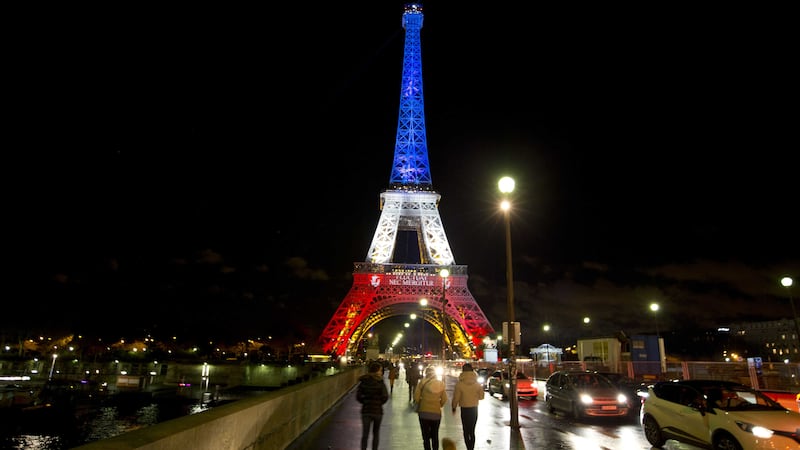THIS time last week started as just another Friday in Paris. People trotted off to work, or luxuriated in the start of a long weekend.
Some were gearing up for a rock concert later that evening. Others were just doing their shopping.
In the aftermath of events as devastating as the February 13 Paris attacks it can be tempting to see them as inevitable.
To see everything leading up to that moment through the prism of that moment and to forget that for everyone, except the attackers, life had been its usual banal, delightful, frustrating, glorious self.
That was the case for the victims most of all. Then it happened.
Three men, linked by a shared hatred so twisted and bitter it defies the description `ideology’, drove three Belgian-registered rental cars to pre-planned locations.
They were according to the authorities “armed with a veritable arsenal of war” and carried out a deadly series of bombings and shootings on cafes, restaurants, a packed concert hall and the national stadium.
By the time they finished 129 people were dead. Eighty-nine killed at the Bataclan concert hall and most of the rest shot dead outside bars and restaurants in the right bank area of Paris or inside La Belle Équipe bar.
Stéphane Hache was killed in his own flat nearby, struck by a ricochet bullet as he hid from the madness.
Friday 13, 2015 was a terrible day. A week later, it is no easier to comprehend.
Paris mayor Anne Hidalgo pointed out that the places attacked were ones Parisians love, where they celebrate diversity.
"It is this Paris that was hit, probably because this example of living together, which is so strong in our city, is unbearable for fanatical people," she said.
There have been echoes of her rallying call for freedom and tolerance across the world, with many people adopting an artist’s clever sketch of the Eiffel Tower as the iconic peace symbol in a simple black circle as their social media avatar.
But there has also been the polar opposite. The calls to close borders and wipe terrorists off the face of the earth were swift and vocal. As was vile hatred spouted about people of different faiths.
Of course the whole point of acts of terrorism is to provoke fear and when people are frightened they lash out. In many ways it is simple cause and effect.
But in the month that much of the world remembered the fallen of the First World War, I was struck by the number of `armchair generals’ out there.
World War One has now come to exemplify the madness and futility of war – the great powers stumbling into a deadly conflict that robbed the world of millions of young lives.
In the first half of the war young men signed up in their millions on both sides. Signed up often to throw those lives away, or have them blighted forever by terrible wounds, both physical and mental.
The scale of the carnage, and deep feeling following the war that it had been fundamentally unnecessary, gave rise to the theory that these men were `lions led by donkeys’.
It is a theory that has largely been debunked, but to my mind it has uneasy resonance today, when people who have no intention of leaving the comfort of their own home proclaim loudly about what they want `their army’ to do.
Are they not, in effect, volunteering other people’s lives for another war? Everyone is entitled to an opinion, but such calls to arms when you’re ‘leading the charge’ in your living room or local hostelry is neither heroic nor impressive.
Oh, and FYI, throwing petrol bombs and spraying graffiti onto a neighbour’s house doesn’t make you a big lad, big lad.
Inevitably, a week on from the attacks, focus has turned to how innocent people can effectively be protected in the future.
That might well be by military means, but we can all only hope and pray that any action taken is only done so after due consideration for potential fallout and is constructive rather than vengeful and knee-jerk.
Because the most important thing is to make sure such attacks do not happen again. Anywhere.








